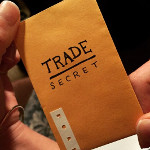NDAs Do NOT Work for China But NNN Agreements Do
The China Law Blog has published part one of an expected series of posts setting out exactly what foreign companies should do (and not do) to protect their intellectual property in China.
The author, Dan Harris of Harris Bricken, tells the story of a prospective client who sought help because a Chinese manufacturer he was working with on a product started selling a new product that happened to have the same features and functions as the product the American developer had submitted to the manufacturer.
Harris’ firm told the prospective client not much could be done because the nondisclosure agreement with the manufacturer was worthless in China. And U.S. patents won’t provide much practical protection, either.
The firm’s lawyers explained that the developer would have been better off if he had an NNN agreement —non-use, non-disclosure, and non-circumvention — that would be enforceable in a Chinese court with jurisdiction over the Chinese defendant. .






